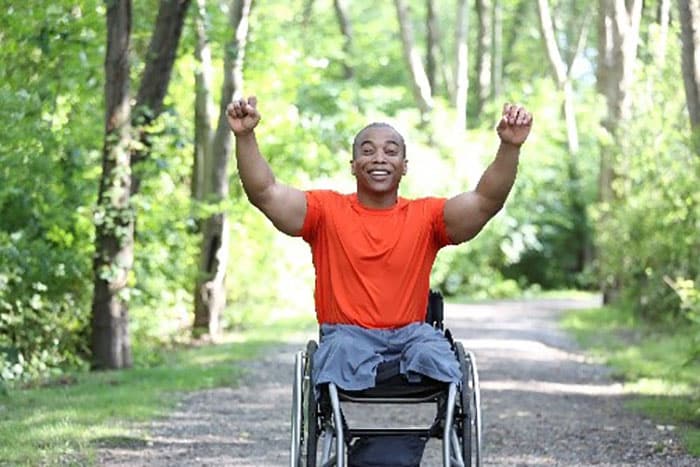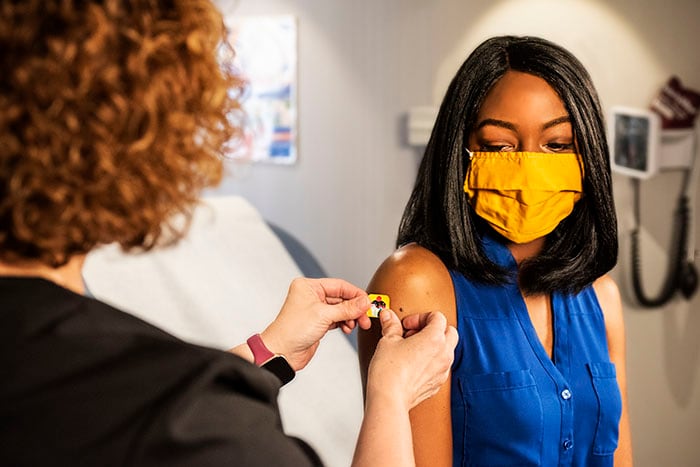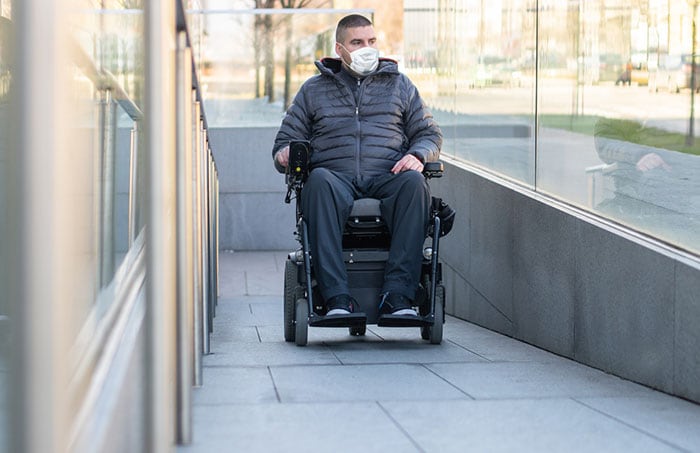Easy Read: Disparities in COVID-19 Vaccination by Disability Status
This is an Easy Read Summary of the following report:
Ryerson A.B., Rice C, et al. (2021). Disparities in COVID-19 vaccination status, intent, and perceived access for non-institutionalized adults, by disability state — National Immunization Survey Adult COVID Module, United States, May 30–June 26, 2021. Morbidity and Mortality Weekly Report (MMWR).

1. What are health and social inequities?
Health and social inequities [in-eh-kwi-tees] are differences (also known as disparities) in health and access to services. In other words, some groups of people are not able to get the services they need.
2. What is health equity?
Health equity happens when every person can achieve his, her, or their best health.
3. What is COVID-19?
COVID-19 is a disease caused by a virus called SARS-CoV-2. The virus spreads from person-to-person when an infected person coughs, sneezes, or talks.

4. What are COVID-19 vaccines?
COVID-19 vaccines help a person’s immune system fight the SARS-CoV-2 virus. A person gets a COVID-19 vaccine through an injection or a shot.
5. What is this study about?
This study is about differences (or disparities) for people with disabilities in
- Getting a COVID-19 vaccine
- Whether they planned to get a COVID-19 vaccine
- The types of barriers, or difficulties they faced getting a COVID-19 vaccine
6. Where did the information for the study described in this Easy Read Summary come from?
The information from this study came from the National Immunization Survey – Adult COVID Module. In this survey, CDC called adults 18 years of age and older on the telephone to ask them questions about the COVID-19 vaccine.
7. What information was collected?
- People were asked if they had a disability:
- “Do you have serious difficulty seeing, hearing, walking, remembering, making decisions, or communicating?”
- If they answered “Yes” to this question, the person was noted as having a disability.
- “Do you have serious difficulty seeing, hearing, walking, remembering, making decisions, or communicating?”
For this study, people were also asked questions about getting the COVID-19 vaccine. For example,
- ”Have you received at least one dose of a COVID-19 vaccine?”
- “How likely are you to get a COVID-19 vaccine?”
- “How safe do you think a COVID-19 vaccine is for you?”
- “How difficult would it be for you to get a COVID-19 vaccine?”
wheelchair solid icon
Adults with disabilities face difficulties with scheduling appointments and accessing places to get vaccinated when trying to get the COVID-19 vaccine.
8. What did this study find?
Compared to adults without a disability:
- Adults with a disability were less likely to report receiving at least one dose of a COVID-19 vaccine.
- Adults with a disability were less likely to report being unsure about getting a COVID-19 vaccine.
- Adults with a disability were more likely to report barriers or difficulty getting a COVID-19 vaccine.
- Some barriers or difficulties with getting a COVID-19 vaccine were
- Getting an appointment online
- Not knowing where to get vaccinated
- Getting to a vaccination site
- Some barriers or difficulties with getting a COVID-19 vaccine were

9. Why are these findings important?
There are ways to help people with disabilities get a COVID-19 vaccine. These ways include
- Making sure that people with disabilities can access COVID-19 vaccine information
- Making sure that people with disabilities can schedule a vaccine appointment
- Making sure that people with disabilities can access vaccination sites
Addressing these barriers to COVID-19 vaccination for people with disabilities can help reduce health disparities, increase COVID-19 vaccination demand, and increase the number of people with disabilities who get the COVID-19 vaccine.
